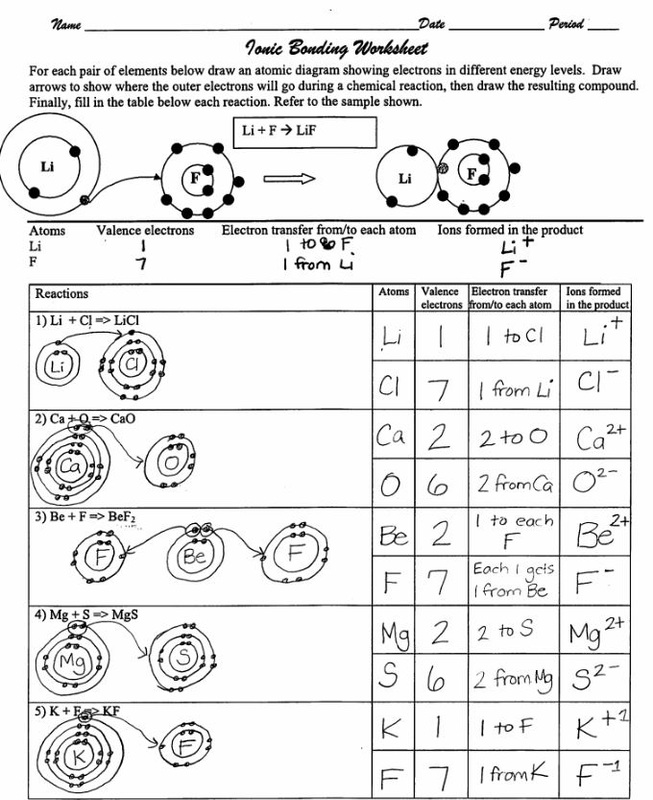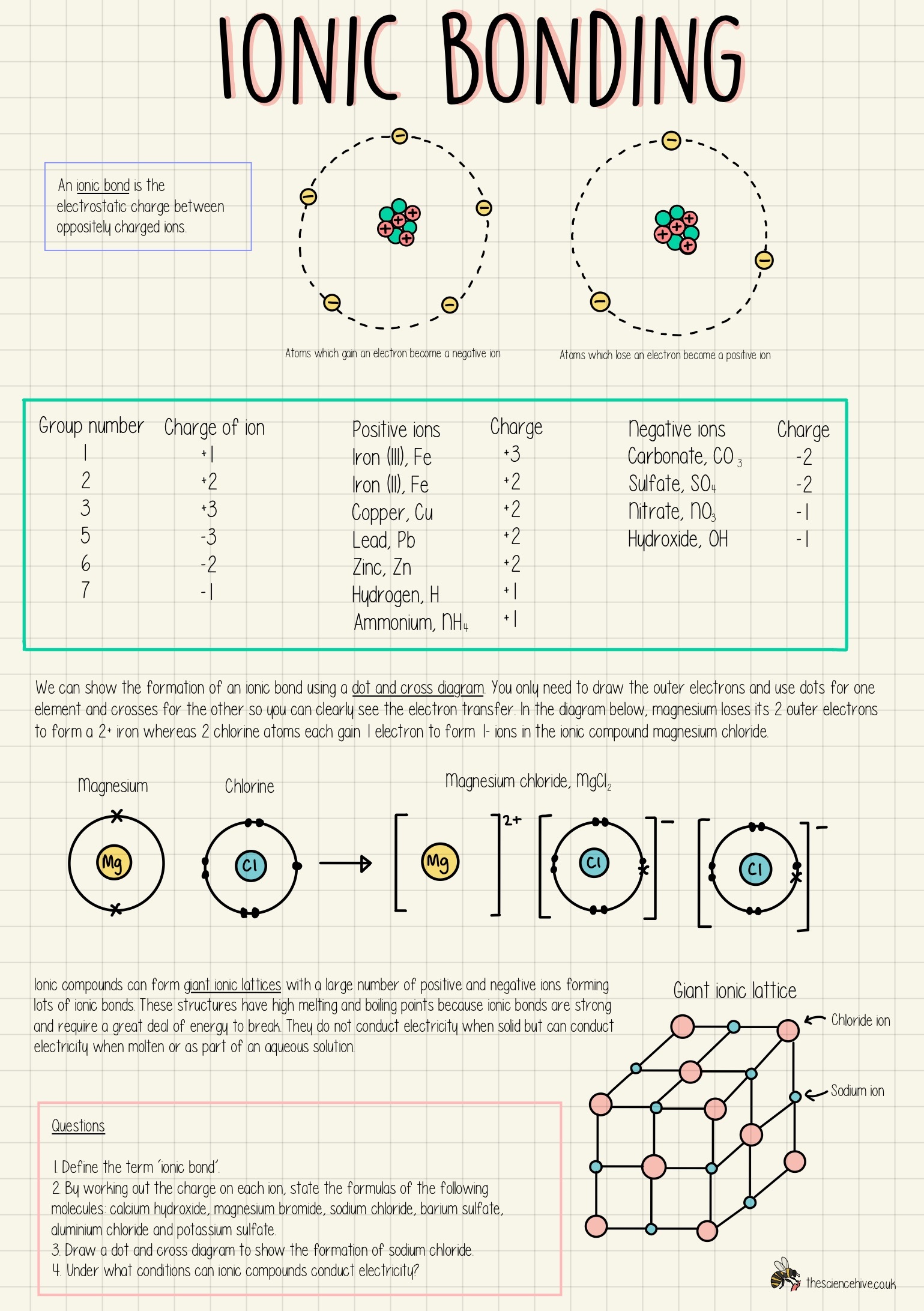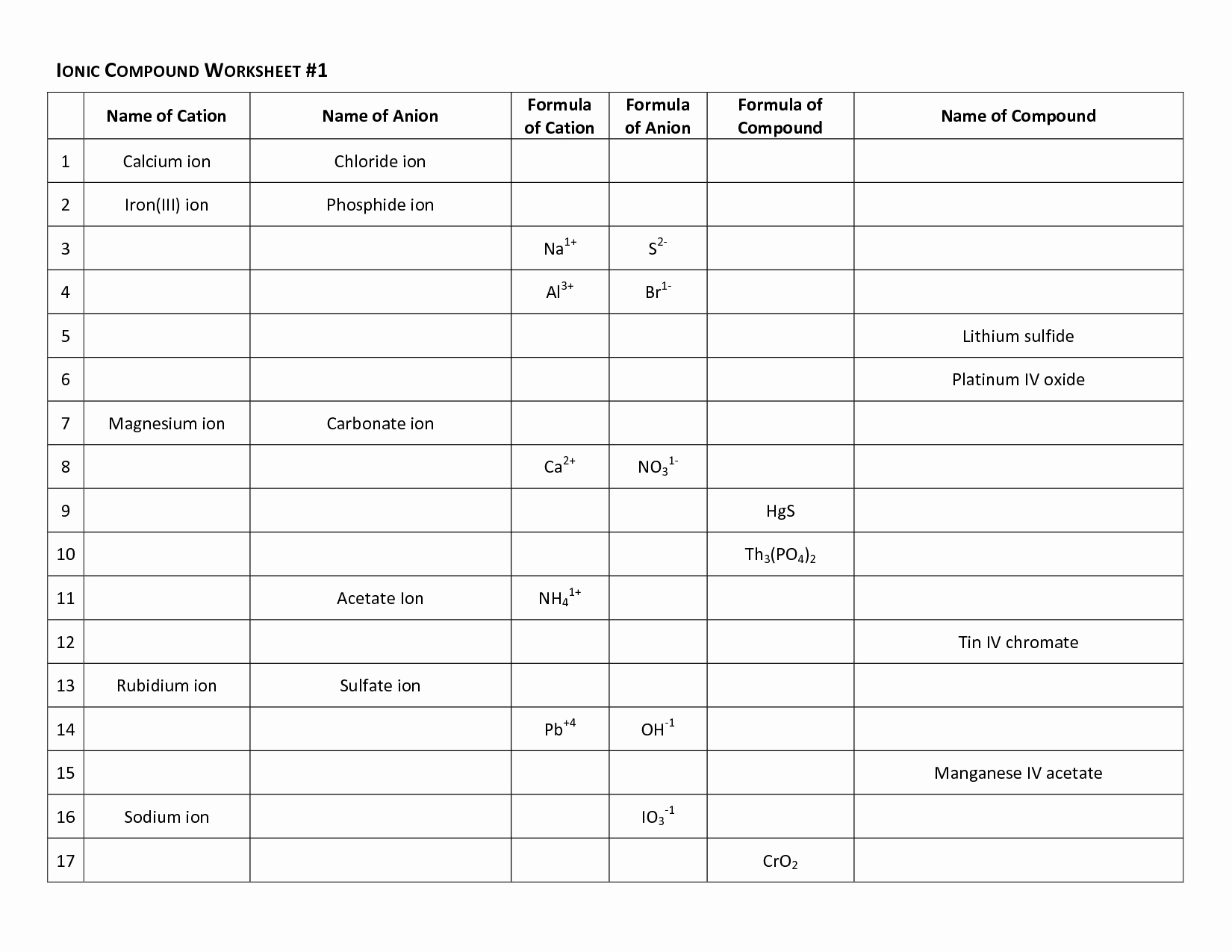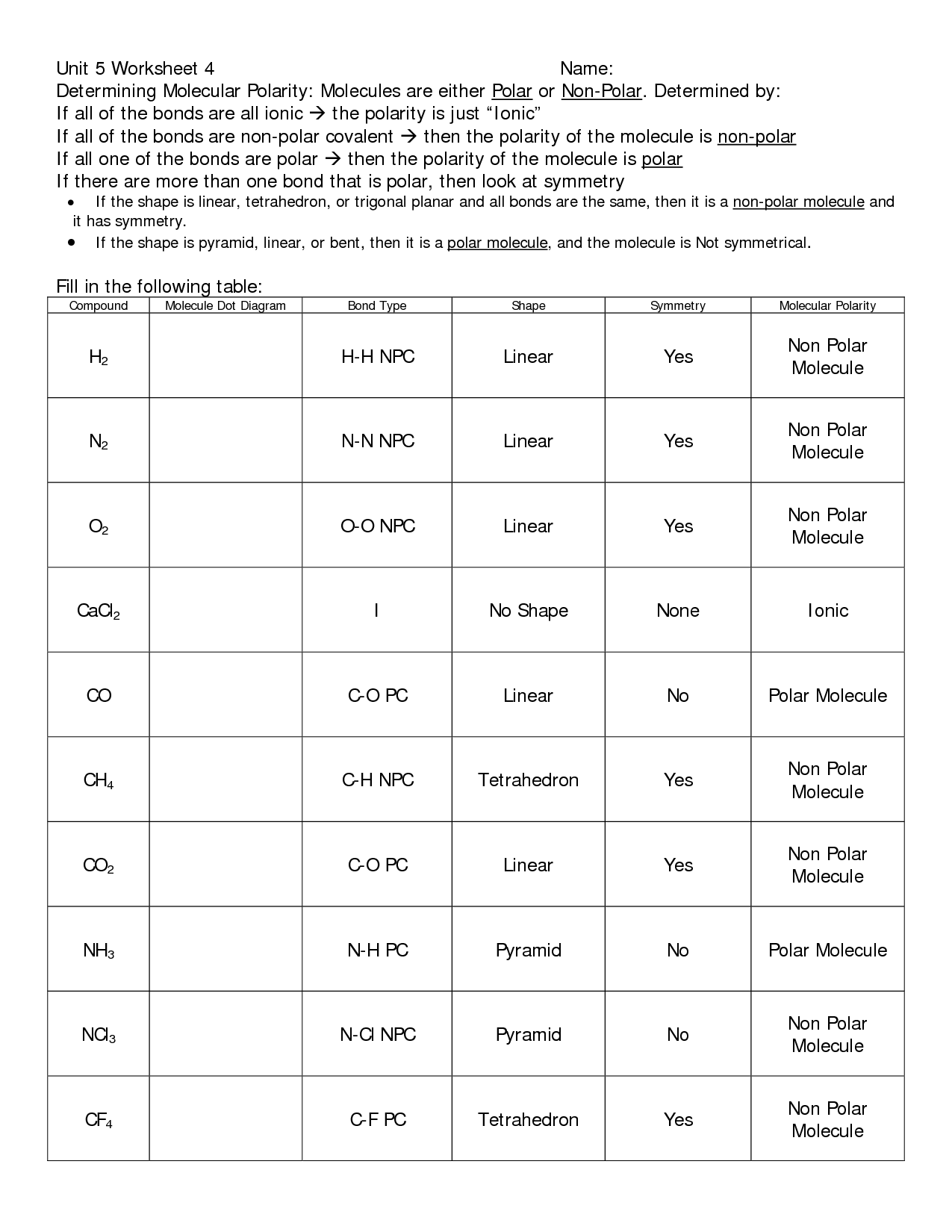Ionic Bonding Worksheet Answers - The resulting cations and anions form very strong bonds. Model 1 substances are called ionic compounds and model 2 substances are called covalent molecules. Write a simple rule that will allow you. Ionic bonds occur when metal atoms transfer electrons to nonmetallic atoms. Ionic bonds • ionic bonds form between _____ and _____. • in naming simple ionic compounds, the _____ is always first, the _____ second (e.g., sodium.
• in naming simple ionic compounds, the _____ is always first, the _____ second (e.g., sodium. Ionic bonds occur when metal atoms transfer electrons to nonmetallic atoms. Write a simple rule that will allow you. The resulting cations and anions form very strong bonds. Ionic bonds • ionic bonds form between _____ and _____. Model 1 substances are called ionic compounds and model 2 substances are called covalent molecules.
• in naming simple ionic compounds, the _____ is always first, the _____ second (e.g., sodium. Ionic bonds occur when metal atoms transfer electrons to nonmetallic atoms. The resulting cations and anions form very strong bonds. Model 1 substances are called ionic compounds and model 2 substances are called covalent molecules. Ionic bonds • ionic bonds form between _____ and _____. Write a simple rule that will allow you.
Ionic bonding worksheet with answers Studocu
Write a simple rule that will allow you. Ionic bonds • ionic bonds form between _____ and _____. Model 1 substances are called ionic compounds and model 2 substances are called covalent molecules. The resulting cations and anions form very strong bonds. • in naming simple ionic compounds, the _____ is always first, the _____ second (e.g., sodium.
Gcse Chemistry Ionic Bonding Worksheet
• in naming simple ionic compounds, the _____ is always first, the _____ second (e.g., sodium. Write a simple rule that will allow you. The resulting cations and anions form very strong bonds. Model 1 substances are called ionic compounds and model 2 substances are called covalent molecules. Ionic bonds occur when metal atoms transfer electrons to nonmetallic atoms.
Ionic Bonding Worksheet Type 1 Practice Ionic Bonding Chemical
Ionic bonds occur when metal atoms transfer electrons to nonmetallic atoms. Ionic bonds • ionic bonds form between _____ and _____. Model 1 substances are called ionic compounds and model 2 substances are called covalent molecules. • in naming simple ionic compounds, the _____ is always first, the _____ second (e.g., sodium. Write a simple rule that will allow you.
Ionic Bonding Worksheet Answers Back Printable Kids Entertainment
Ionic bonds • ionic bonds form between _____ and _____. Model 1 substances are called ionic compounds and model 2 substances are called covalent molecules. Write a simple rule that will allow you. The resulting cations and anions form very strong bonds. Ionic bonds occur when metal atoms transfer electrons to nonmetallic atoms.
Ionic Bonding Worksheets Answer
The resulting cations and anions form very strong bonds. Model 1 substances are called ionic compounds and model 2 substances are called covalent molecules. Ionic bonds occur when metal atoms transfer electrons to nonmetallic atoms. Ionic bonds • ionic bonds form between _____ and _____. Write a simple rule that will allow you.
SOLUTION Ionic bonding gizmo answers Studypool
• in naming simple ionic compounds, the _____ is always first, the _____ second (e.g., sodium. Write a simple rule that will allow you. Ionic bonds • ionic bonds form between _____ and _____. Model 1 substances are called ionic compounds and model 2 substances are called covalent molecules. Ionic bonds occur when metal atoms transfer electrons to nonmetallic atoms.
Ionic Bonding Worksheets
Write a simple rule that will allow you. Ionic bonds occur when metal atoms transfer electrons to nonmetallic atoms. • in naming simple ionic compounds, the _____ is always first, the _____ second (e.g., sodium. Model 1 substances are called ionic compounds and model 2 substances are called covalent molecules. The resulting cations and anions form very strong bonds.
Free Printable Ionic Bonding Worksheets
Model 1 substances are called ionic compounds and model 2 substances are called covalent molecules. Ionic bonds occur when metal atoms transfer electrons to nonmetallic atoms. Ionic bonds • ionic bonds form between _____ and _____. • in naming simple ionic compounds, the _____ is always first, the _____ second (e.g., sodium. Write a simple rule that will allow you.
Ionic Bonding Worksheet And Answers
Model 1 substances are called ionic compounds and model 2 substances are called covalent molecules. Ionic bonds occur when metal atoms transfer electrons to nonmetallic atoms. Ionic bonds • ionic bonds form between _____ and _____. • in naming simple ionic compounds, the _____ is always first, the _____ second (e.g., sodium. Write a simple rule that will allow you.
Bonding Basics Ionic Bonds Worksheet
Model 1 substances are called ionic compounds and model 2 substances are called covalent molecules. The resulting cations and anions form very strong bonds. Write a simple rule that will allow you. Ionic bonds • ionic bonds form between _____ and _____. Ionic bonds occur when metal atoms transfer electrons to nonmetallic atoms.
The Resulting Cations And Anions Form Very Strong Bonds.
Write a simple rule that will allow you. • in naming simple ionic compounds, the _____ is always first, the _____ second (e.g., sodium. Ionic bonds • ionic bonds form between _____ and _____. Model 1 substances are called ionic compounds and model 2 substances are called covalent molecules.









